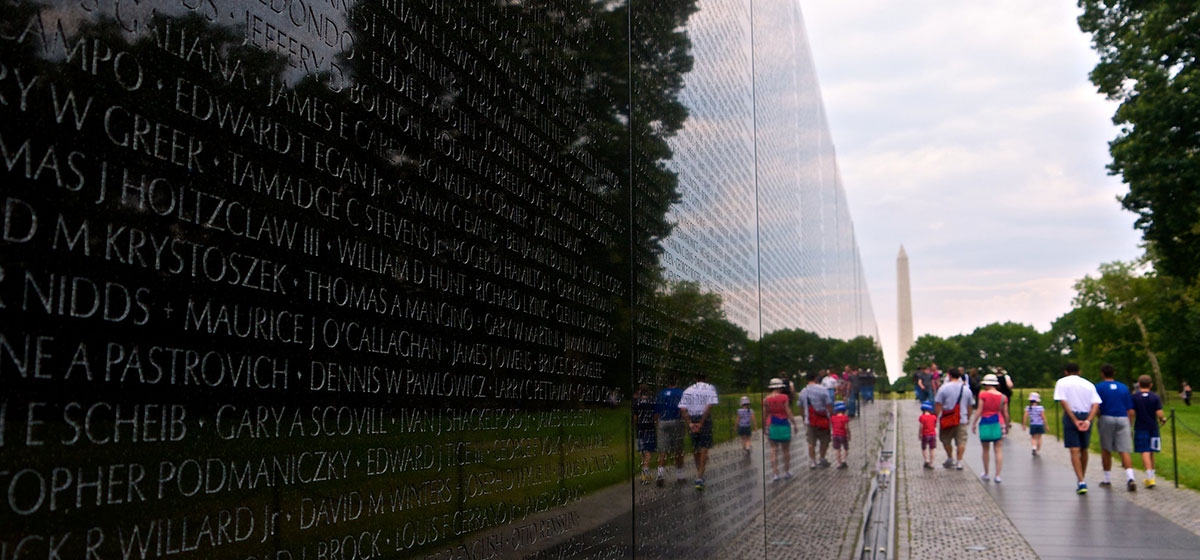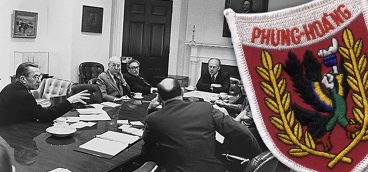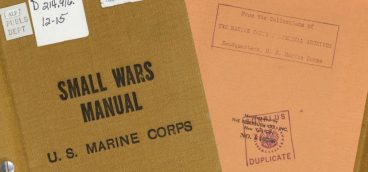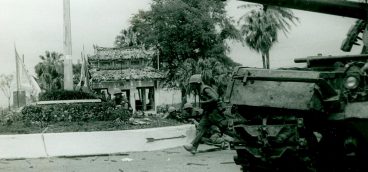What Will Millennials Tell Their Grandchildren?

Coming out of the restaurant we nearly collided with him—a compact, bearded man in a wheelchair, oxygen delivered to his nose from the tank tucked beside him. His scraggly gray-black beard rested against his chest; the liveliest part of his face was the bright blue of his eyes.
When I apologized for almost bumping into him, saying I’d get out of his way, he demurred, answering in a voice barely audible, “Take your time. You’re not in my way and I’ve got nothing but time.” When I, my millennial grandson beside me, hesitated, he looked up at us and said, “All those years ago when I was a Green Beret in Vietnam I never dreamed I’d end up like this.”
I answered with some platitude about being glad he was here and thanked him for his service to the country. He said he appreciated that and wheeled himself away.
As we walked to the car my grandson admitted confusion about the Green Beret reference and his ignorance regarding the Vietnam war. This, despite his education at a highly regarded private school and distinguished university. I was disappointed but not surprised by his comment. Not only his generation, but many other Americans didn’t know about or had forgotten the tragic, costly war that divided our country and brought so much grief.
After the encounter with the disabled veteran, I tried to describe the anti-war demonstrations, the riots, the political chaos, the loss of so many young lives and the wounding and maiming of so many others.
Like his friends, my grandson listens to song lyrics and writes his own so I told him about a poem I used to teach my high school students. Written by Wilfred Owen and called “The Parable of the Old Man and the Young,” it uses the biblical story of Abraham nearly sacrificing his son to demonstrate his faith to refer to an earlier war fought in the trenches of Europe. In Owen’s poem, “the Ram of Pride” is rejected and, instead, the old man “slew his son/And half the seed of Europe one by one.” The poem is a stark reminder that old men start wars but young people die in them.
My grandson’s face was grim as he listened to descriptions of the anti-war protests in the 1960s; the riots in Chicago at the 1968 Democratic convention; and the gruesome military abuses in the My Lai massacre. Although we live in a world sadly accustomed to violence and mass shootings, he was shocked at the killing of the students on the Kent State campus in 1970 and sympathetic to the nation-wide university protests that followed. The student strikes and university sit-ins were responses he could relate to.
What was harder for him to understand was the way Vietnam veterans were treated when they returned home after the withdrawal of our troops and the Paris Peace Accords of 1973. Instead of being thanked for their sacrifices and honored for service to their country, they were often treated with silence and neglect by civilians feeling sad and guilty about a war they opposed or ignored. A historian, Shelby Stanton, wrote, “An entire American army was sacrificed on the battlefield of Vietnam.”
We Americans are living through another time of ugly divisiveness, still mired in a war fought in the deserts and mountains of Afghanistan, a country so alien and strange to us we know it only through images on our screens. The tragedy that was the Vietnam war is barely a blip in our memories.
What do you suppose the millennial generation will tell their grandchildren? Will their poets lament the loss of more young people to inexplicable wars? Or will they write lyrics of joy celebrating diminished violence and untimely death while, all over the world, people welcome peace?





